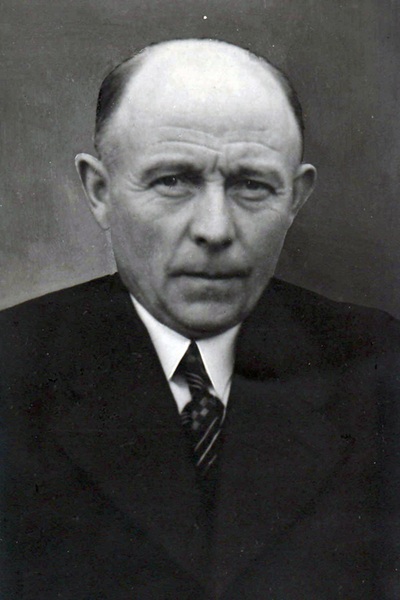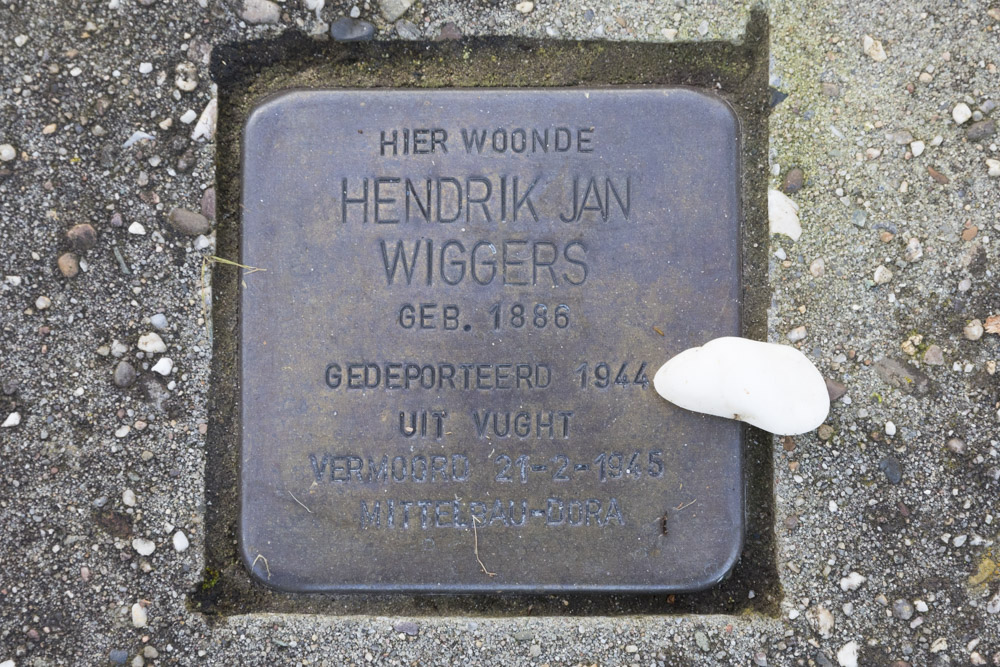Wiggers, Hendrik Jan
- Date of birth:
- December 29th, 1886 (Aalten/Gelderland, Netherlands)
- Date of death:
- February 21st, 1945 (Concentration camp Mittelbau-Dora, Nordhausen/Thüringen, Germany)
- Nationality:
- Dutch
Biography
Resistance fighter
Hendrik Jan Wiggers was born on 29 December 1886 in Aalten and married Aleida Meijnen, born on 12 July 1896, also in Aalten, on 17 June 1920. It was his second marriage; his first wife had died in childbirth. They lived at Vellegendijk 17 in Aalten, on a farm in the hamlet of Wolboom, a quiet and secluded spot in a wooded area.
In October 1941, acts of sabotage were committed in the east of the country and, in response, the German occupiers began holding raids in Twente and the Achterhoek. Jewish boys and men were rounded up and deported to Mauthausen. The Jewish Meijler family was deeply concerned and the men decided to go into hiding. After much effort, they found a safe hiding place with the Wiggers family. In time, the situation calmed down and the Meijlers returned home.
But in July 1942, the systematic hunt for Jews began: entire families were taken from their homes and transported via Westerbork to the extermination camps. Once again, the Meijler family sought a hiding place and, after several other addresses, which in the long run proved unsafe, they were once again welcomed by the Wiggers family.
Meanwhile, Hendrik became involved in the resistance in Aalten. The resistance group, which arranged shelter for people in danger and carried out raids to obtain voucher cards, met in Wiggers' farm, where, apart from the Meijler family, the deposed mayor of Aalten, a medical student from The Hague and an English airman had also found refuge.
On 20 April 1944, things went wrong. After a traitor infiltrated within the resistance group, the German police raided on this day. On the approach of the raid van, the hiders quickly disappeared to their hiding places. They were not found, but Hendrik Wiggers was taken away. Via the S.D. office in Arnhem, he was taken to Camp Vught. There he was held until the Allies entered the south of our country in September (Dolle Dinsdag). The camp was hastily evacuated and Wiggers was deported to Sachsenhausen, from where he was put to work in Groß-Rosen (Poland) in November. On the approach of the Russian army in February 1945, this camp was also evacuated. The prisoners were transported westward by train, a nine-day journey under harsh winter conditions. Shortly after arriving at Mittelbau-Dora concentration camp, near Nordhausen, Germany, he fell ill due to exhaustion and died on 21 February 1945, aged 58.
Aleida Wiggers continued to care for the children and those in hiding. All of them, including the Jewish Meijler family, survived the war.
On 29 February 2012, Hendrik and Aleida Wiggers were recognised by the Israeli institute Yad Vashem and posthumously honoured as ‘righteous among the nations’, ‘for having protected and saved Jewish fellow citizens at the risk of their lives’.
Do you have more information about this person? Inform us!
- Period:
- Second World War (1939-1945)
- Awarded on:
- February 29th, 2012




